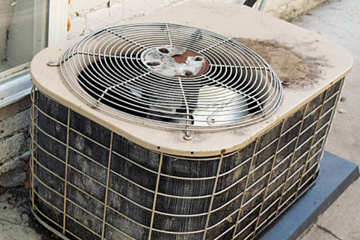Why do air conditioners produce water
If you’re reading this article, considering that it’s written in English, you’re probably fortunate enough to have regular access to air conditioners. Further, you’re most likely interested in understanding why air conditioners produce water.
Before answering this question, we need to understand what exactly an air conditioner is, as well as how an air conditioner works.
What is an air conditioner?
Air conditioners are generally found in homes and vehicles, though there are also some types of portable air conditioners. In any case, all of these devices can be considered to be air conditioners.
An air conditioner is a machine that cools air. In most cases, the air being conditioned is inside the cab of a vehicle, building, or house.
As far as commercial and residential buildings are concerned, air conditioners are either mounted in walls and windows or part of HVAC systems. The former type of air conditioner typically only cools air. HVAC systems, on the other hand, are full-fledged air treatment networks that ventilate, heat, and cool in an all-in-one format.
How do air conditioners work?
Put simply, air conditioners cool air through the application of chemicals known as refrigerants. Refrigerants are highly specialized substances that usually come in liquid form. They are enclosed in air conditioners and used repeatedly over the life cycle of air conditioners.
One of the most important parts of an air conditioner is that of their coils. These coils are metal tubes looped up, down, and around and around air conditioners and are filled with refrigerants.
These coils are connected to the air conditioner’s compressor. This compressor pressurizes the refrigerant, causing it to change form to a liquid from a gas. The condensed, compressed refrigerant then makes its way inside the coils, also known as evaporator coils.
A fan blows air over the evaporator coils, causing the air to become colder.
As long as an air conditioner is on, this cycle is repeated. The compressor pressurizes the refrigerant inside of evaporator coils. The cooled, condensed refrigerant has warm air blown over it. The air is cooled by being in direct contact with the cold evaporator coils. This causes the evaporator coils to become warmer as a result of temperature exchange.
Now that you know what an air conditioner is and how it works, it’s time to learn why air conditioners produce water.
Why do air conditioners produce water?
All air conditioners produce water, whether they’re wall-mounted, part of HVAC systems, or used in commercial buildings, homes, or vehicles. Most people only notice water being produced as a by-product of wall-mounted air conditioners’ function. However, rest assured that all air conditioners are guilty of producing water.
Humidity is a prime culprit of air conditioners’ water production
You already know that air conditioners work by removing heat from existing air, exposing it to cold evaporator coils, and blowing the newly-conditioned air back into the home, business, or vehicle they’re attached to. However, it’s important to know that air conditioners also work by removing moisture from air.
One reason why air conditioners make us feel more comfortable is that they reduce the temperature of the air in spaces that we work or live in. Another reason is that air conditioners reduce the humidity of air.
Humidity, if you didn’t already know, is a term used to describe moist air or to quantify exactly how much water vapor is in the atmosphere or in a closed-off sample of gas.
Why does humidity make us hot?
Our body cools itself off by producing sweat. Sweat, which is mostly composed of water, evaporates from the body’s skin, helping us get rid of heat more quickly.
Whenever the air around us is more humid, it isn’t as willing to evaporate our body’s sweat, thereby causing us to feel hotter.
There are a few other reasons why air conditioners produce water outside of reducing humidity.
Evaporator coils might be icy
Sometimes, evaporator coils get too cold, causing them to turn the water vapor they get rid of into ice. The more ice an air conditioner contains, the more water it will pump out as a result.
Drain lines could be plugged
All air conditioners have drain lines. These lines are used to carry out the water they remove from the air. You might notice more water build-up if your air conditioner’s drain lines are plugged or partially blocked.
